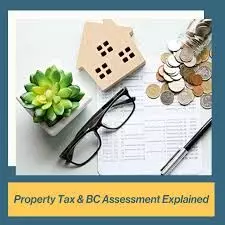Tax Assessment & Market Value

Tax Assessment & Market Value
When it comes to buying or selling a property, understanding the concepts of tax assessment and market value is crucial. These factors play a significant role in determining the worth of a property and can have a substantial impact on both sellers and buyers. In this blog post, we will delve into the world of tax assessment and market value, exploring the intricacies and importance of these factors in the real estate market.
Tax assessment is the process by which local governments determine the value of a property to calculate property taxes. It involves appraising the property based on various factors such as location, size, amenities, and condition. The assessed value is then used to calculate the amount of property tax owed by the owner.
On the other hand, market value is the price at which a property would sell in the open market, determined by the forces of supply and demand. Unlike tax assessment, market value is influenced by both objective factors (such as location and property condition) and subjective factors (such as buyer preferences and market trends).
One common misconception is that tax assessment and market value are always the same. However, this is often not the case. Assessments are typically conducted less frequently and may not accurately reflect the current market conditions. In some cases, the assessed value may be lower or higher than the market value, leading to discrepancies and potential implications for both sellers and buyers.
For sellers, understanding the assessed value of their property can provide a starting point for pricing. However, relying solely on the tax assessment may result in either overpricing or underpricing the property. Overpricing can deter potential buyers, while underpricing may lead to financial losses for the seller. It is crucial for sellers to consider market trends, recent sales in the area, and consult with real estate professionals to determine an appropriate listing price.
Buyers, too, should pay attention to tax assessments when considering a property. Assessments can provide valuable information about the property's history, such as any improvements or renovations that may have increased its value. However, buyers should not solely rely on tax assessment when determining a fair offer. Conducting thorough market research, comparing similar properties, and seeking expert advice is essential to make an informed buying decision.
In British Columbia, tax assessments are conducted by the British Columbia Assessment Authority (BCAA). BCAA determines the assessed value of properties based on market conditions as of July 1 of the preceding year. For example, the 2024 tax assessment will reflect market conditions as of July 1, 2023.
It is crucial to note that tax assessments are not set in stone. Property owners have the right to dispute their assessments if they believe they are inaccurate. However, this process can be time-consuming and requires supporting evidence.
In conclusion, tax assessment and market value are two critical factors in the real estate industry. While tax assessments provide a guideline for property taxes, market value reflects the actual worth of a property in the current market. Sellers should consider both factors when determining the listing price, while buyers should conduct thorough research to ensure a fair offer. Understanding the differences between tax assessment and market value is essential for a successful real estate transaction in British Columbia and beyond.
Recent Posts









“Whether it’s your first apartment or pied-a-terre, a newly developed condo or a waterfront estate, our Advisors will work with you to understand your requirements and achieve your priorities.”
~ Adrian Langereis